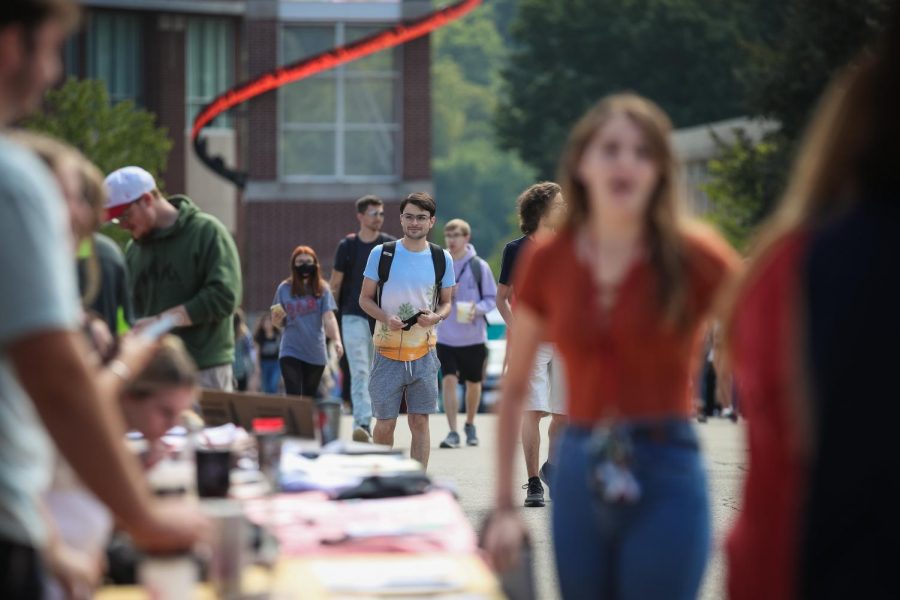Cal U’s Peer Mentoring program seeks upperclassmen to mentor incoming freshmen in Spring 2022
December 2, 2021
The Peer Mentoring Program is looking for upperclassmen student volunteers to mentor incoming students for the Spring semester.
California University of Pennsylvania offers the Peer Mentoring Program as one of many free services to students. “We kind of market it as a big brother, big sister program, where an incoming student would have an upperclassman to help support them as they transition from high school to college,” said interim director, Carrie Schubert.
The program depends on student volunteers, known as mentors, to guide up to three incoming Cal U students, called protégés. While most protégés are incoming freshmen, the program is also made available to transfer students and international students. “We tend to recruit incoming students at New Student Orientation, which is an event that they do in the summer before they start school,” said Schubert. Students are also recommended the program in First-Year Seminar, a required one-credit class where first-year students learn more about campus resources and transition into college life.
Being on the student side of Cal U brings a different perspective compared to faculty members, which is an aspect of the program. “Returning on campus after the pandemic was challenging for me and I could not imagine having to do it as an incoming freshman. I wanted to be a mentor so I could help incoming students feel welcomed and let them know what Cal U has to offer for them,” said junior Alyssa Lambert-Alonso, who is mentoring for the first time this semester. Lambert-Alonso, and her protégé, Mackenzie Kohler, are both criminal justice majors.
Academic majors are the primary priority of the office when matching mentors to protégés. Another pair, sophomore Makendra Pendleton and freshman Mary Nagy, are both in the Physical Therapist Assistant program. “On campus, I am the vice president of the PTA club, and my protégé is a member of the club,” said Pendleton. Mentors are encouraged to invite their protégés to get involved on campus, whether that be in a club their mentor is in or another one.
But, they do take other aspects into account. “The top three things that we match on are academic major, personal hobbies, and involvement in a club, organization, or athletic team,” said Schubert. “We also will look at special populations,” she added. The program is accommodative of students’ wishes and often pairs students of color together when requested, and LGBTQ protégés with allies or other members of the community.
While it may seem that the Peer Mentoring program focuses on solely benefitting protégés, the student mentors find value in the program as well. “Being a mentor can also lead to new friendships and it is a great way for someone to start if they have never had some type of leadership position,” said Lambert-Alonso.
Schubert listed some of the skills gained through mentoring, “They get Soft skill development. So just working on things like communication, social skills, problem-solving, leadership, cultural competency, and just networking with faculty in their department and their peers.” She says that by referring a protégé to campus resources, a mentor is more likely to take advantage of the services Cal U offers, such as tutoring, themselves.
If a student wants to volunteer to be a mentor, they can email the mentoring office at mentoring@calu.edu, or look at the announcements when the program is recruiting mentors, which is typically at the end of each semester.








